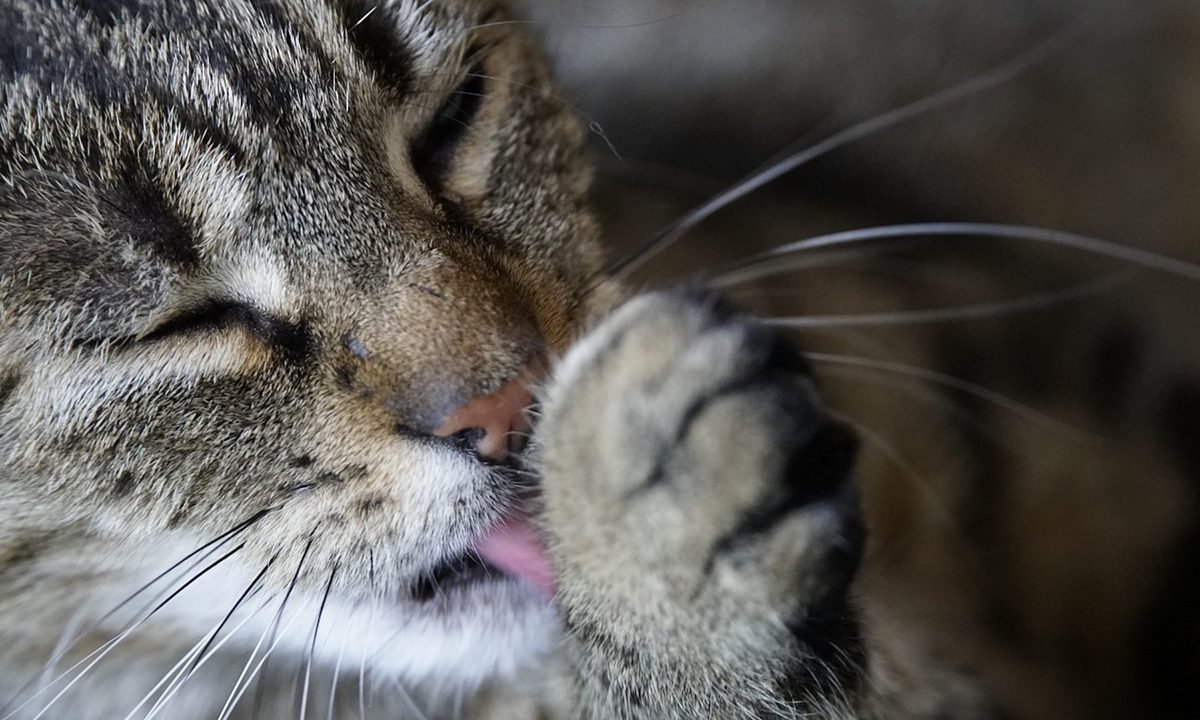Grooming is a common behavior for cats, and chances are, your cat takes several baths a day to keep himself clean. Kitties are naturally fastidious, and that instinct serves their health and safety well. While many cats are thorough self-groomers, some enjoy having a little help every now and again and might groom fellow felines. If you’re wondering, “Why do cats groom each other?” — don’t worry; this behavior is normal and even indicates that they are trusting and bonded with each other. If your pet engages in mutual grooming with another cat, you’re seeing a natural behavior and a happy, secure cat.
Understanding self-grooming
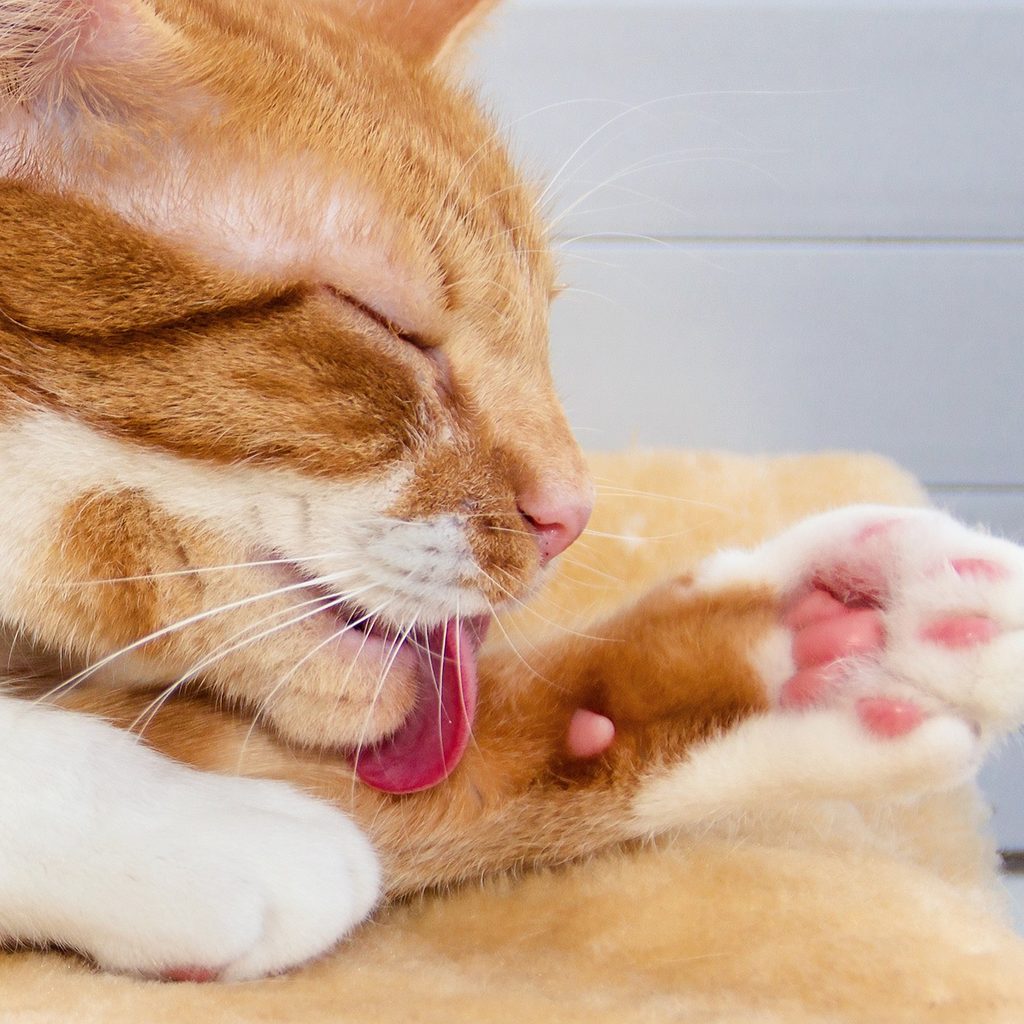
To understand why cats groom each other, you need to first know why our four-leggers groom themselves. Grooming has multiple important purposes, and they all contribute to your cat’s health and safety.
When your cat grooms himself, he’s removing dirt from his hair and may also get rid of parasites. He’s keeping his coat in good condition — helping to prevent mats from developing, which can lead to skin irritations. Grooming also distributes the natural oils in your cat’s coat, so the fur is healthier and stronger, too.
But grooming also removes scents — particularly the scents of food — from your cat. In the wild, this has the important purpose of preventing predators from smelling and then following the cat. It’s a key safety measure, and your cat’s instinct to groom himself could save his life if he didn’t have you to protect him.
Understanding mutual grooming
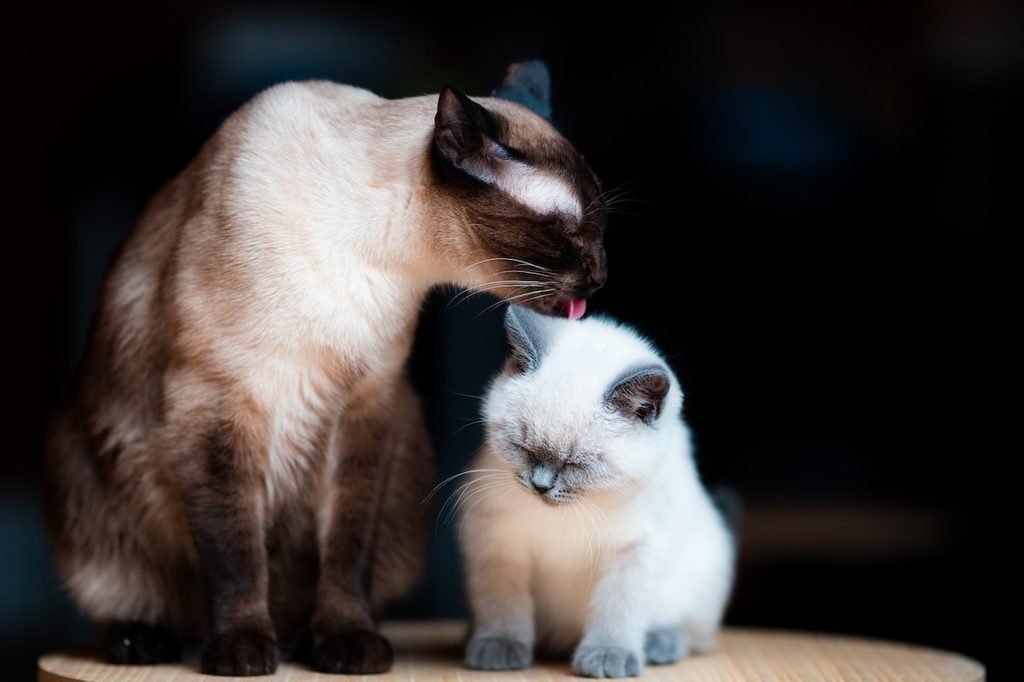
So, is cats grooming each other normal? This behavior starts at birth, when mother cats groom their kittens to stimulate them to have bowel movements and to breathe. Licking also can help stimulate a kitten’s circulation and contributes to young kittens’ health.
When cats get older, they may start to groom each other for similar health reasons. Sometimes cats focus on grooming the head and neck, which are spots that are difficult for them to get to on their own. This mutual bathing offers convenience over self-grooming.
In some cases, grooming can also be an important social activity that helps reassure cats. It can signal affection and provides an important element of bonding. Cats often purr while they’re grooming themselves or others, and this also can be a soothing behavior. It’s unlikely that cats who aren’t highly familiar with each other would engage in mutual grooming, but animals who are good buddies and who trust each other are much more likely to groom each other.
Does the dominant cat groom the other?
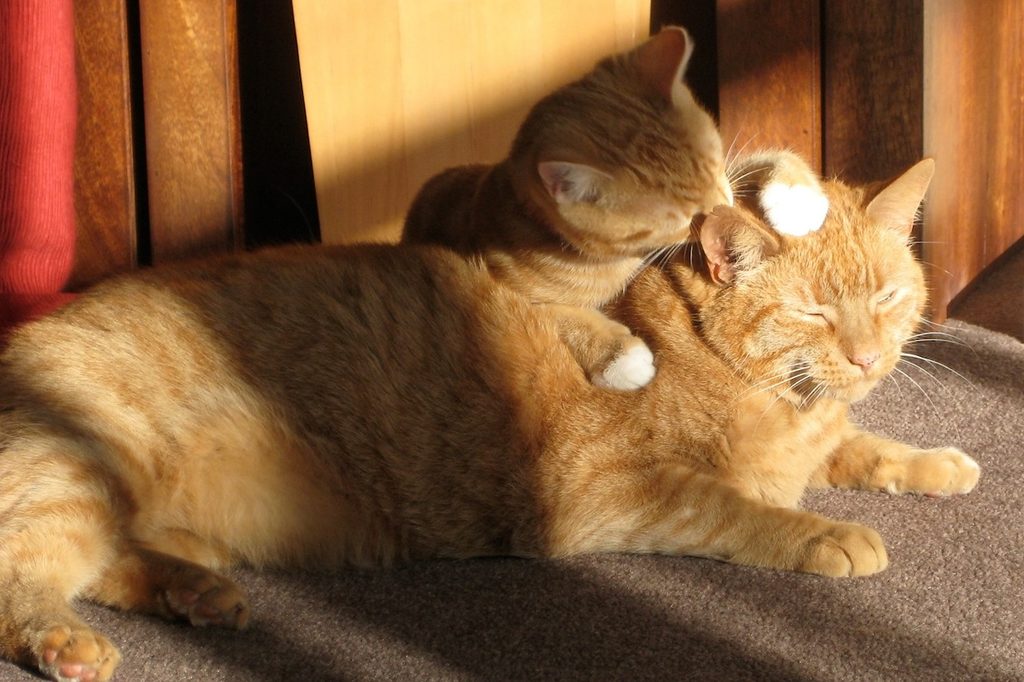
While we’ve covered the basic reasons behind grooming, like bonding and keeping clean, there’s another reason you might see one cat lick the other: It’s a show of dominance. That’s right, sometimes your cats groom to establish hierarchy, and the dominant furry friend licks the more submissive one.
Don’t worry about this behavior too much — even though it doesn’t make sense to us, it’s a part of cat culture. They get to decide among themselves who’s in charge. Alternatively, you could spot both pets licking each other equally, meaning they occupy the same space on the ladder. Still sometimes a grooming session can turn aggressive.
When grooming turns eventful
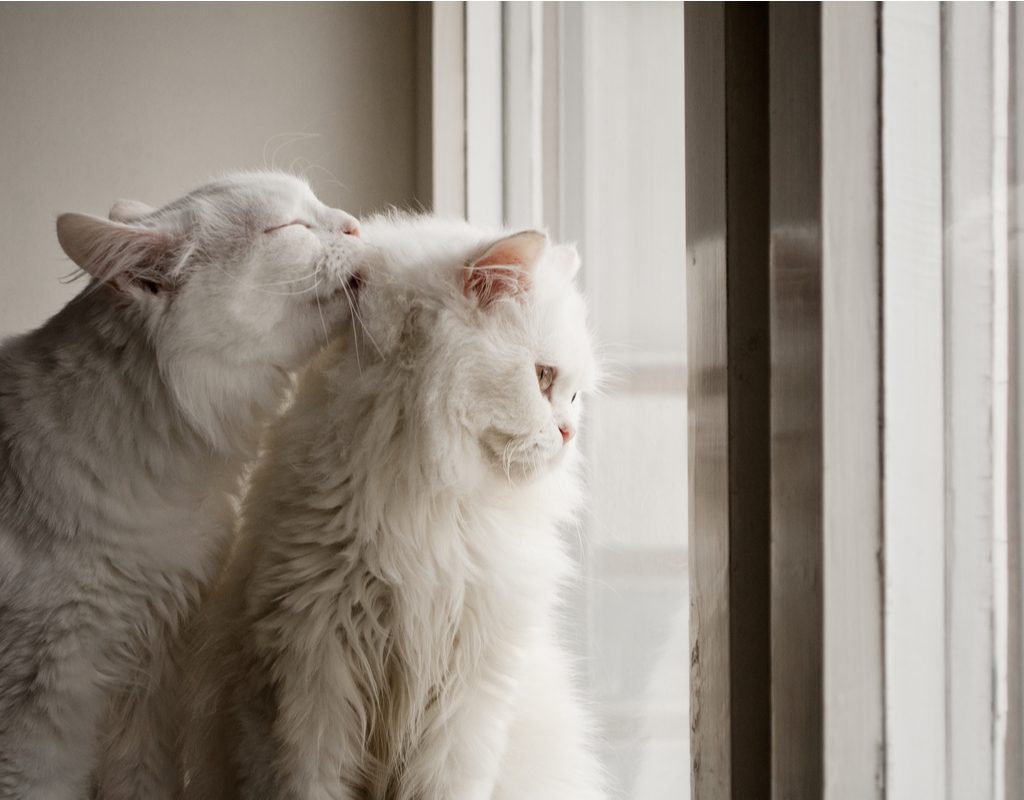
Sometimes, cats who are grooming each other may suddenly break up the grooming session and seem to turn aggressive. This can happen when one cat is just done with the grooming and needs the other cat to lay off. Most little guys who will groom each other are already good companions, so they’re unlikely to truly do any harm to each other and will probably sort out their differences with a small squabble.
It’s also possible that what looks like violence could be your cats engaging in play. Play fighting and wrestling are a natural behavior for cats, especially kittens. After a good grooming session, one might initiate a play session, and at first glance it can look a lot like fighting. If you watch for a little longer, though, you’ll probably see that your pets are both having a good, playful time.
Final thoughts
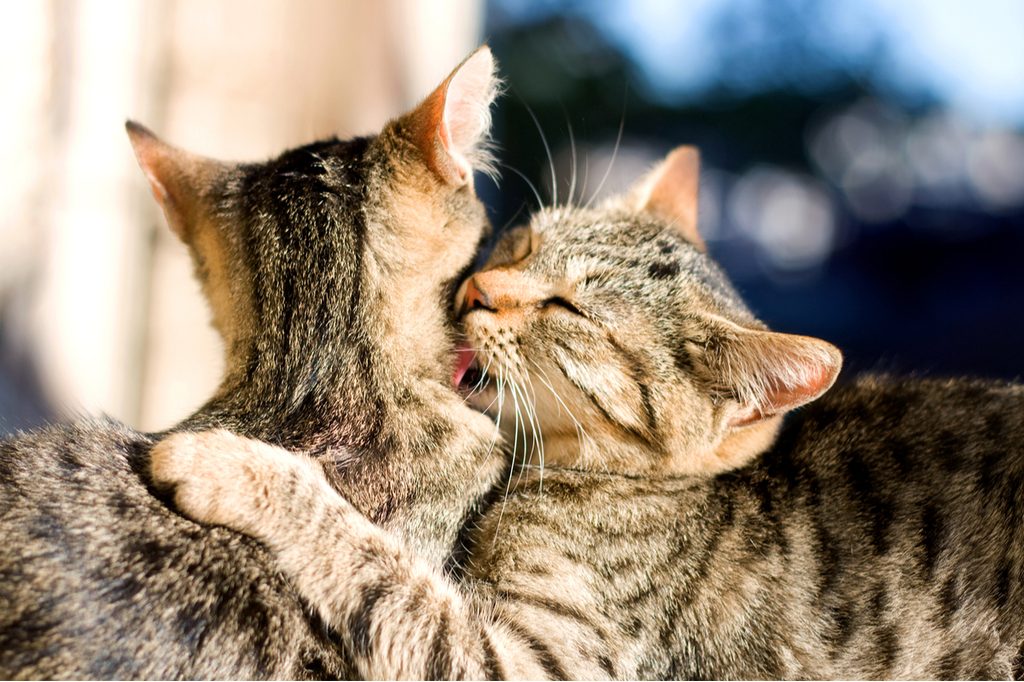
Grooming is an important behavior for cats, and monitoring your kitty’s grooming habits can give you insight into his overall health. If your cat is grooming others and has a good-looking, healthy coat, then his cleaning habits and health are probably just fine. But cats can also take grooming to the extreme, and some cats may groom themselves excessively, leaving bald patches and sparse coats. This over-grooming can be caused by stress, but it can also be the result of allergies or parasite infestations.
In contrast, if your cat is grooming himself less and less, you might see that his coat becomes dull, matted, and unhealthy. This lack of grooming can also indicate that your cat isn’t feeling well, and a trip to the vet is in order. You can use your cat’s grooming habits to gauge his health and well-being, especially when you understand what motivates your cat to keep himself — and sometimes others — clean.
